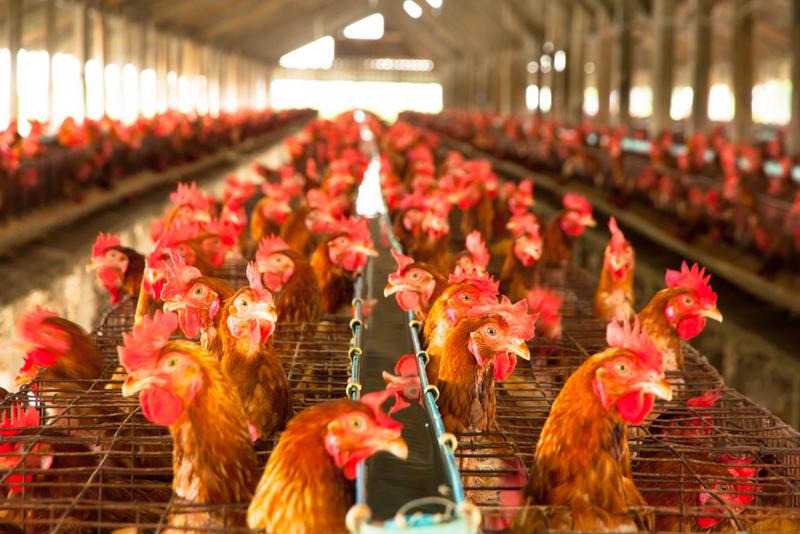1. Avian influenza
Perhaps the biggest contributor to the problem is avian influenza. Otherwise described as bird flu, avian influenza is a highly contagious viral disease that has hit many poultry farms throughout the U.S. Because avian influenza can be spread from chickens to animals, farmers have been forced to cull their flocks on the off-chance that their birds may be infected. For example, in Nebraska, a leading national producer of eggs, over 6.7 million chickens have been linked to the outbreak, according to federal data obtained by The Wall Street Journal. Colorado, meanwhile, has seen its hen population dip by 90% over the past year. Overall, at least 58 million birds (including turkeys) have died because of avian influenza, whether they were infected or culled as a preventive measure, the Wall Street Journal reported separately.
Maggie Baldwin, a veterinarian in the Centennial State, told the WSJ that the strain has decimated Colorado's poultry population — and there's no end in sight.
"One of the challenges is that we don't know why it has been able to thrive for so long," Baldwin explained. We're almost a full year into this outbreak and it is ongoing."

2. Food costs
Another contributing factor is inflation, particularly food inflation. Both the United Nations' Food Price Index (FPI) and the Labor Department's Consumer Price Index (CPI) climbed dramatically in 2022. While these respective measures have diminished more recently — down nearly 2% in December for the FPI and 0.1% for the CPI — food costs remain considerably higher than they were a year earlier.
3. Poor chicken feed quality
Although the evidence is more anecdotal than documented, some poultry farmers have claimed their hens aren't laying any eggs. Generally speaking, a fully grown hen lays one egg every 24 to 26 hours. But both professional and amateur chicken farmers have taken to social media and said some of their chickens have gone several months without producing a single one.
"My chickens have not laid an egg since July, and nothing's changed," said one man in a TikTok video, as reported by Evie Magazine. He added that he's seen other people on social media attest to encountering the same issue. The man further stated that production resumed after switching to a different feed that he bought from a local producer.
The primary cause of higher egg prices is bird flu, and it's unclear when that condition will subside. The limited supply of eggs likely won't normalize until chicken flocks are replenished, which could take several more months, depending on how quickly farmers are able to bounce back and the speed with which hens grow. According to the University of Wisconsin-Madison, egg laying hens usually begin to produce eggs by the time they reach 5 to 6 months of age.



Post A Comment:
0 comments so far,add yours